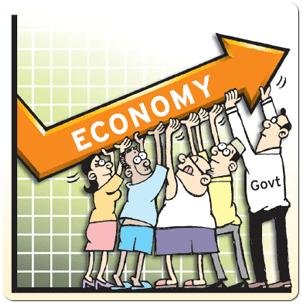At the Millennium Summit in 2000, against the backdrop of a world grappling with multiple socio-economic challenges, the United Nations led the earth to a consensus; a set of eight carefully crafted and formulated goals, strategically chosen such that their complete execution will impact on virtually all sectors of all economies just like a chain reaction.
These goals which spanned the eradication of extreme poverty and hunger, achieving universal primary education, to combating diseases and improving maternal health were tagged the “Millennium Development Goals (MDGs)” and, immediately, they gained acceptance and broad recognition as a whopping 189 countries and 23 international organizations present at that particular General Assembly of the United Nations (UN) spontaneously agreed to work towards achieving the goals which were time-bound by a 15 year window. By a process of concrete strategic planning, the MDGs were analyzed and further broken down into targets and indicators which were measurable on a continuous basis. The 8 goals had 21 targets and a spectrum of health and economic indicators for each target.
The race towards the actualization of these global goals has been on for 14 years, and as the deadline closes in, it is useful to examine what progress has been made globally and on the African continent. The Food and Agricultural Organization (FAO) of the United Nations recently reported that 63 countries in the world have already reached the Millennium Development Goal hunger target, of halving the proportion of chronic undernourishment by 2015. This was disclosed by Dr Louise L. Setshwaelo, Nigeria’s Representative for the FAO at the World Food Day celebration in Abuja, Nigeria’s capital. Being that the United Nations currently has 193 member nations, this information could mean that the world is only 34 percent through the goal of eradicating extreme poverty and hunger.
The Inter-Agency and Export Group (IAEG) on MDG indicators, coordinated by the United Nations Statistics Division, has been leading efforts to track global progress in executing these goals. Also, periodic reports from the desk of the UN Secretary General provide updates every year. According to the latest of such reports, efforts in the fight against malaria and tuberculosis have shown results, access to improved drinking water sources became a reality for some 2.3 billion people, disparities in primary school enrolment between boys and girls are being eliminated in all developing regions, the political participation of women has continued to increase and hunger continues to decline although additional efforts are required because 842 million people still suffer from chronic hunger worldwide. These were all targets for the goals, and the world has achieved a fair amount of them.
Africa’s story may be less optimistic as sub-Saharan Africa has been called the epicenter of the development crises. There are huge discrepancies across and within African countries, and within countries, poverty is highest for rural areas. In June, 2005, the G8 Finance Ministers agreed to provide significant levels of financing by empowering the World Bank, International Monetary Fund (IMF) and the African Development Bank (AfDB) to cancel debts of the order of $40 billion – $55 billion owed by members of the Heavily Indebted Poor Countries (HIPC); this was to enable them redirect more resources into initiatives aimed at boosting health, education and prosperity.
Nigeria, Africa’s biggest economy, has been a fervent signatory to the MDGs right from inception and has deployed significant resources into achieving them. In 2005, the Federal Government created the Office of the Senior Special Assistant to the President on the Millennium Development Goals (OSSAP-MDGs) to act as the Secretariat to the Presidential Committee on the assessment and monitoring of the MDGs. In this role, it provides guidance, coordination and oversight of the debt-relief gains while working alongside partners and other actors.
The country may have made the most progress in achieving universal primary education as up to 60% of eligible school children were enrolled in schools in 2013 due to concerted efforts from the public and private sector. In promoting gender equality, reducing child mortality and improving maternal health, it has made less progress.
South Africa’s progress is similar to that of Nigeria, and this may be a continental pattern where some goals have seen significant progress while others are a far cry from completion.
As at 2012, 15 of the 20 countries that made the greatest MDGs-related progress were from Africa with the likes of Benin, Egypt, Ethiopia, Gambia, Malawi and Rwanda making impressive progress on a number of goals and targets. Generally, Africa has been on track with achieving universal primary education, promoting gender equality, combating HIV/AIDS and promoting global partnership for development. It continues to record less progress in the other four goals particularly in eradicating extreme hunger.
A number of reasons explain the level of progress made by the continent. Typically, the key challenges border on weak institutions, socio-political instability in some regions, high structural unemployment, and the recent global recession. Like UN Secretary General Ban Ki Moon has made clear, achieving the MDGs is not the responsibility of the government alone but requires targeted and consistent efforts from the public, private and third sectors; it is everybody’s responsibility.
From current pace, both globally and continentally, it is clear that the goals would not be completely achieved by 2015, hence the need to offer an extension of some sort. It is this line of thinking that has ushered in the post-2015 development agenda as a sequel to the MDGs.
“The post-2015 development agenda is slated to carry on the work of the MDGs and integrate the social, economic and environmental dimensions of sustainable development. Continued progress towards the MDGs in the remaining year is essential to provide a solid foundation for the post-2015 development agenda,” writes Wu Hongbo, Under-Secretary-General For Economic and Social Affairs, in the 2014 MDG report.
By Emmanuel Iruobe








